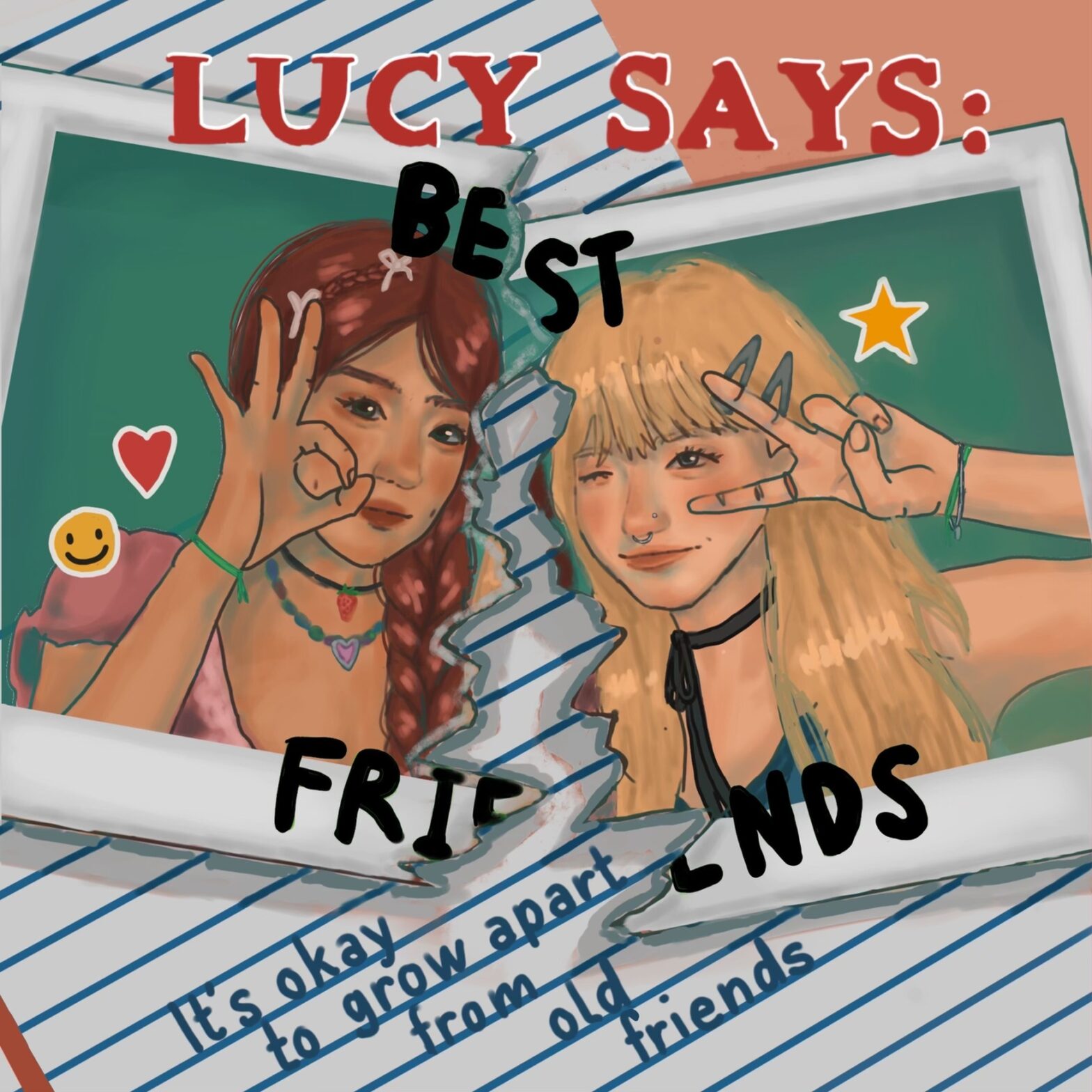This installment of Love, Lucy was originally published in the New School Free Press’ fall 2023 print issue.
Hi Lucy,
I knew that when I came to college, I’d inevitably drift away from my hometown friends. But I still have to go home every summer, and it feels lonely because I don’t see them, even when we’re all home. It’s especially worse because I always see them hanging out with each other, and I’m never invited. Or if I ask them to hang out, they don’t have time for me. How do I overcome this feeling of loneliness at home, and why are they doing this?
Dear Reader,
It might seem like a childish analogy, but it may serve you well in this instance to think of your life as a book. I don’t quite remember where or when I first read this, likely on tumblr somewhere, but it goes like this: if your life is a book, then it exists in chapters.
Some characters are introduced at the very beginning and stay until the last page, while others are only around for a chapter or two. Not every character can stay until the end of your story, but that doesn’t make their presence any less valuable.
Even just accepting this is a big feat, so don’t set unrealistic expectations for your own feelings. It’s okay to grow apart from people, and it’s also okay to miss them or feel nostalgic and sad about a past friendship.
Being in your early 20s is about growth, and that means growing into and out of all kinds of things. You can’t move forward without leaving something behind, and though this is a bittersweet sentiment, it’s also a sign that you’re maturing at a healthy and normal rate.
The Survey Center for American Life reported that only two thirds of people in the US have a friend from childhood, meaning a good thirty three percent of Americans grew up and apart from hometown and high school friends — just like you might be.
You should be making room for change, at least ideally. Growing up is synonymous with evolving, and you can’t evolve without changing some things about yourself, your interests, the people who surround you.
Change is what marks each new stage of our lives, and it’s reflected in every part of them, including our relationships. Those need to evolve too. A friendship that served you incredibly well — perfectly, even — when you were in sixth grade isn’t suddenly a bad friendship, it’s just not the right friendship for every version of you.
And as much as it hurts to be on the outs with people you used to be so in sync with, you’re also going to inevitably shed some layers, leaving some people behind in past iterations of your life.
As for the way the people you’re drifting from are choosing to do the drifting, that’s also largely characteristic of this developmental phase of your lives, despite how unfair and unfun that might sound.
I’m sure it’s not news to you that our brains don’t finish developing until about the age of 25, and it’s the prefrontal cortex that’s really still cooking during this time. That region is in charge of complex thoughts, actions, emotions, and executive functions, meaning we don’t have a solid handle on any of those things until our mid-twenties.
And not only is the prefrontal cortex not fully developed during this time, it’s also especially prone to stress-related damage. The National Library of Medicine noted in a study on stress and the prefrontal cortex that “even quite mild acute uncontrollable stress can cause a rapid and dramatic loss of prefrontal cognitive abilities.”
I don’t need to tell you that your 20s are just as much of an era of change as they are an era of stress and increased responsibility. If the stress that characterizes this decade of life is also making it harder for our brains to develop and make us fully capable of handling that stress, well we’re going to run into problems.
So your friends from home, who are all going through the same kind of caterpillar-to-butterfly-like transition you are, will probably mismanage and mishandle all kinds of sensitive stuff — including being petty or callous or just immature and not treating your relationship with the respect and care it deserves.
They can’t help it; their brains won’t have the tools to be more delicate for several more years. I hope that provides even an iota of comfort, even if it feels like the cynical kind. I can’t promise you it’s not personal for them at all, but I can promise it is biological. Significantly so.
Being excluded hurts, there’s no cushioning that blow. Hopefully you have other people and things in your life at home that can ease the sting. These are, for the great majority of us, our last big chunks of time at home as “kids” or something close to it. Treasure that.
Remember the things that brought you joy in that place growing up and tap into them. Nurture your relationships with your family, soak up the smell of home cooked meals, say yes to running errands with your mom, offer to walk the dog — just be there.
I promise that you’ll make new and more friends, Dear Reader. And in the meantime, lean into the other parts of home that are less fleeting. Most importantly, even though you might feel lonely, know that you’re not alone. We’re all becoming butterflies too.








Leave a Reply